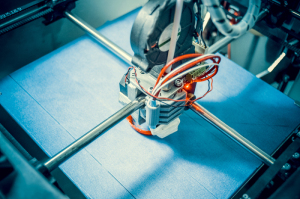NIH awards $15 million to support development of 3-D human tissue models
by
Thomas Dworetzky, Contributing Reporter | September 14, 2017

The NIH has granted 13 two-year awards for a total of $15 million per year to researchers investigating so-called tissue chips – 3-D platforms on which human cells can live – that can be used to test new drugs.
“The goal is for these tissue chips to provide more accurate platforms to understand diseases, and to be more predictive of the human response to drugs than current research models, thereby improving the success rate of candidate drugs in human clinical trials,” said NIH’s National Center for Advancing Translational Sciences' (NCATS) Director Dr. Christopher P. Austin about the Tissue Chip for Drug Screening program, which began in 2012.
This issue of developing and implementing new therapies is known as translational science.
At present over 60 percent of such investigational drugs are found ineffective in human clinical trials due to a lack of effectiveness, despite promising pre-clinical studies using today's techniques of cell and animal research models.
If the funding is there for fiscal year 2018, the second $15 million will be spent. Plans call for this funding to be the first part of a five-year plan to develop these platforms – which are able to mimic human organs and systems for better drug testing.
Tissue chips can also be strung together to reproduce a “body on a chip.” This lets researchers look at the impact of drugs and agents on the entire body before trying them on actual humans.
On the research agenda for new awardees is a range of ailments, from rheumatoid arthritis, kidney disease, and human influenza A viral infection, to amyotrophic lateral sclerosis (ALS), hereditary hemorrhagic telangiectasia and arrhythmogenic cardiomyopathy.
In phase two of the awards, if funded in FY 2018, researchers will link up with pharmaceutical firms to study the new technology for drug assessment.
The 2017 awardees are from across the country, including: Brigham and Women’s Hospital, University of California, Cedars-Sinai Medical Center, Columbia University, Duke University, Harvard University, Northwestern University, Washington University in St. Louis, University of Pittsburgh, University of Rochester, University of Washington, and Vanderbilt University.
Also in September, NCATS was in the news when it announced that it would accept applications to create “reasoning tool” prototypes for its Biomedical Data Translator (Translator) program.
The goal of the Translator program is to make a computational platform able to pull together disparate biomedical data “to reveal complex relationships that help scientists better understand disease behavior and biology, and develop treatment options,” NCATS said in a statement.
The program is scheduled to offer three awards of about $1 million each to make the prototypes.
“The challenge questions are aimed at attracting innovative, persistent individuals who can bring unique approaches to developing a Translator reasoning tool,” Noel Southall, Ph.D., informatics, NCATS, said in the announcement.
The first steps in the program began in 2016, when researchers were funded to work on demonstration projects.
“The currently funded teams are taking advantage of each other’s expertise and resources to determine the possibilities for Translator,” said Christine Colvis, Ph.D., NCATS Drug Development Partnership Programs director. “We expect the next stage of this research will bring these into clearer focus.”
|
|
|
You Must Be Logged In To Post A Comment
|
